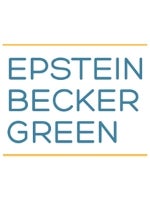While Congress’ attention has most recently been focused on the American Health Care Act, that bill will most likely not be the only proposed legislation that Congress will consider in 2017. It appears that a tax reform plan (the “2017 Tax Proposal”), which could also have a wide-reaching impact, is also on the agenda.
If the 2017 Proposal includes provisions relating to defined contribution retirement plans sponsored by private employers, such as 401(k) plans, the impact will be felt by employers and investment managers, as well as by plan participants. While the Trump Administration has stated that the current version of its 2017 Tax Proposal does not reduce pre-tax contributions to 401(k) plans, speculation continues that a later draft may include curtailment of these contributions or other changes with a similar impact.
Reduction of benefits under defined contribution plans as a means of raising tax revenues is not a novel idea. The Tax Reform Act of 2014 (the “2014 Tax Proposal”), which was introduced in 2014 by former Republican Congressman Dave Camp, included various provisions that would have potentially reduced the availability of, or tax benefits under, 401(k) plans and other defined contribution plans. A summary of certain of these provisions follows, along with an analysis of the potential impact on participants, plan sponsors and investment managers:
Reduce pre-tax contributions. Under the 2014 Tax Proposal, participant pre-tax deferrals into 401(k) plans would have been limited to 50% of the Internal Revenue Code limits for pre-tax contributions and catch-up contributions. Participants could make contributions in excess of the 50% limit (up to 100% of the limits) as Roth contributions, which are made on an after-tax basis. For 2017, the limits on pre-tax and catch-up contributions are $18,000 and $6,00 respectively. This provision would have made similar changes to plans sponsored by tax-exempt organizations and state and local governments.
Impact: For participants who traditionally make the maximum pre-tax deferrals permitted, this provision would increase their annual income taxes and potentially reduce their retirement savings. This provision could also decrease participant investments in 401(k) plans, which would reduce the amount of retirement plan assets available for management by investment managers. Sponsor of plans that do not permit Roth contributions may feel obligated to amend their plans to permit Roth contributions, which would involve expenses that generally could not be paid from the plan.
Accelerate required minimum distributions. The 2014 Tax Proposal would have required participants who became 5% owners of their employer after age 70 ½, but before retirement, to begin to take distributions by April 1 of the following year. Under current law, the required date is April 1 of the year following retirement. Additionally, the 2014 Tax Proposal would have required that distributions to certain beneficiaries be made within five years following the death of the participant.. Under current law, distributions may, in some cases, be over the life expectancy of the beneficiary.
Impact: This provision would accelerate income taxes on the minimum required distributions to 5% owners and certain beneficiaries, as minimum required distributions are not eligible for rollover to an IRA. Investment managers would feel the impact of this change to the extent that the affected participants reduce their contributions to pay the taxes due on these accelerated required minimum distributions.
Suspend inflation adjustment to contribution limits. The 2014 Tax Proposal would have suspended the inflation adjustment for the annual limit on employee pre-tax contributions to 401(k) plans and other defined contribution plans. Under current law, these limits are indexed annually for inflation.
Impact: Suspension of the inflation adjustment on pre-tax contributions would reduce contributions to defined contribution plans. This reduction would result in increased income taxes and potentially reduced retirement savings for participants and reduced retirement plan assets available for management by investment managers.
No new SEPs or SIMPLE 401(k) plans. The 2014 Tax Proposal would have prohibited employers from establishing new Simplified Employee Pensions (“SEPs”) and Savings Incentive Match Plans (“SIMPLE 401(k)s”). Under current law, certain employers may make contributions to SEPs up to the maximum permitted, which, for 2017, is the lesser of $54,000 and 25% of compensation. In a SIMPLE 401(k), which is available to employers with no more than 100 employees, participants may make deferrals on a pre-tax basis (up to $12,500 in 2017) and employers make either a 2% matching contribution for the employee deferrals or a 3% profit-sharing contribution to all eligible employees.
Impact: By prohibiting adoption of new SEPs and SIMPLE 401(k)s, this provision would have restricted employers’ ability to design a compensation and benefits program that met the needs of their business and employees. Their employees would be denied the ability to make pre-tax contributions and to defer income tax on those deferrals to a later date, which would affect their current tax obligations and, potentially their retirement savings. This provision also would reduce the amount of retirement plan assets available for management by investment managers.
Conclusions
While the details of the final version of the 2017 Tax Proposal are not yet knowable, the 2014 Tax Proposal provides some insight into the types of provisions that ultimately could be included. Given the potential impact of the 2017 Tax Proposal on defined contribution plans, plan sponsors may want to defer significant amendments to their plans until the extent of that impact is more certain.




 />i
/>i
